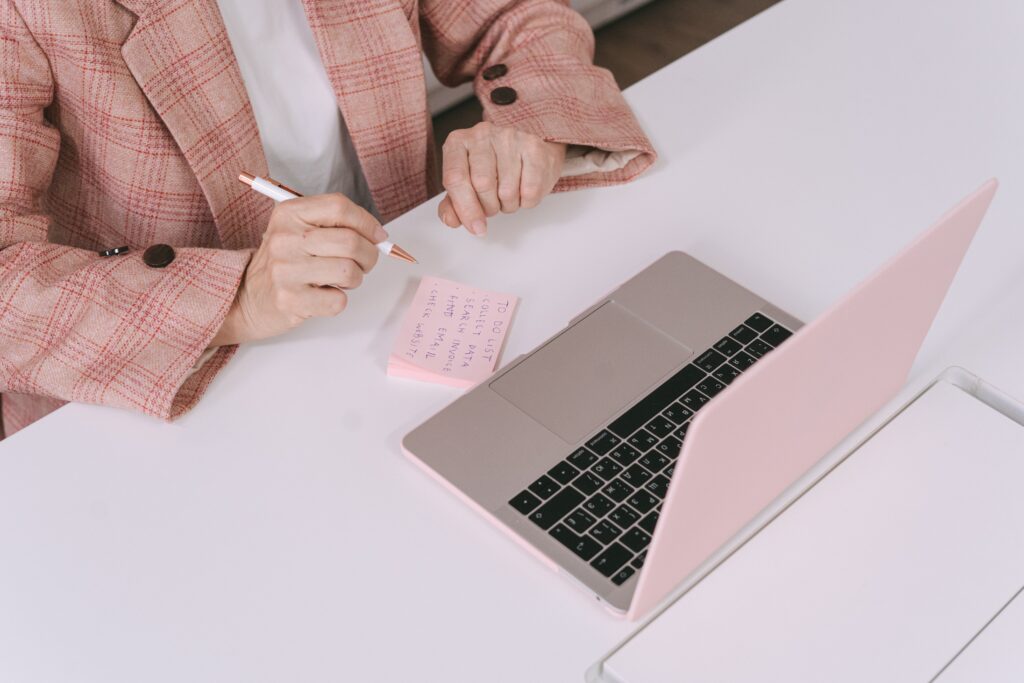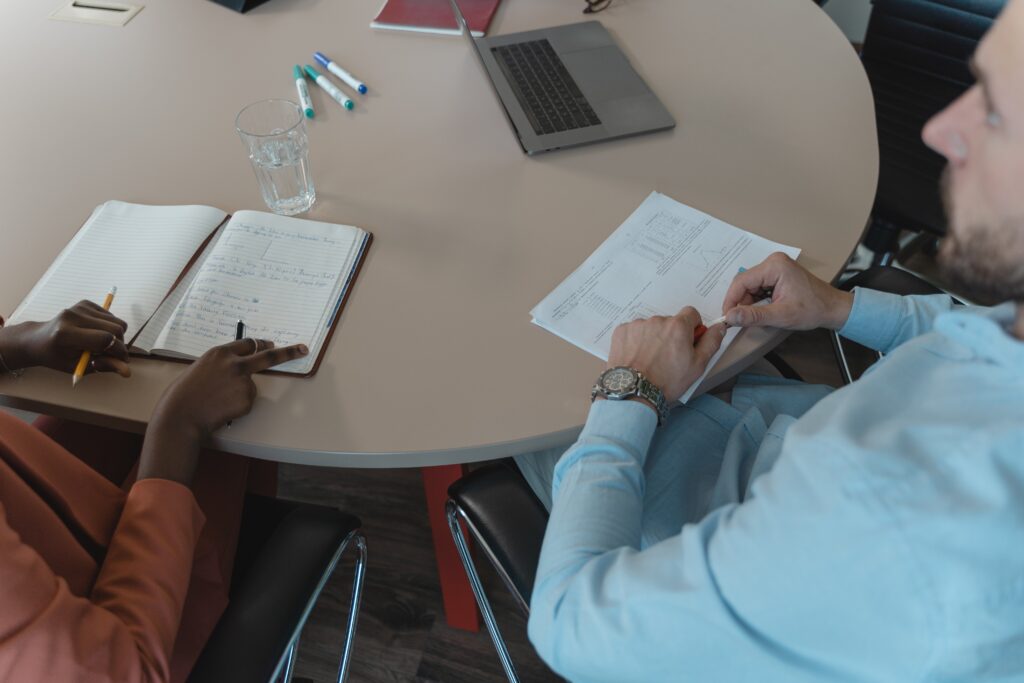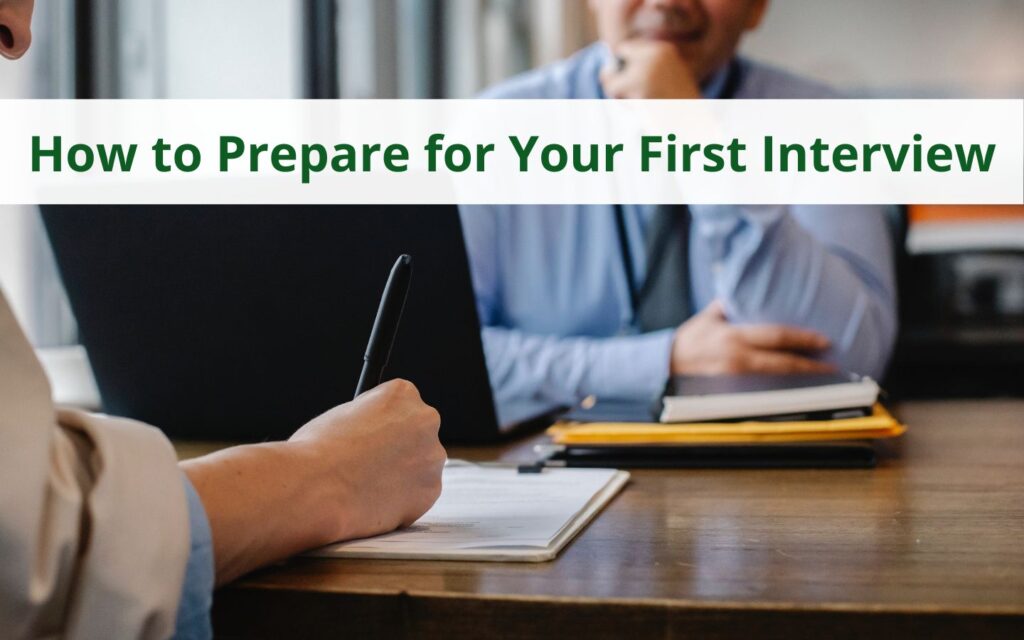From “beta what’s your GPA” to “what unique will you bring for our company”, we all have dreaded these questions.
Interview questions can be daunting. Many don’t sleep the night before their first interview. No one gives you a 5-year booklet or notes to prepare before the interview.
What will they ask?
What if I go blank?
Am I overdressed or underdressed?
Oh, I don’t know the answer. What should I say?
Am I doing too much urrr ummm?
It’s tough, but this is exactly where we all started. This guide will help you prepare for your first interview, show up with confidence, and leave an impact on the interviewers. Let’s start.
Preparations Before the Big Day
Your interview starts right after you receive the “happiness call”. Here are a few tips to start preparing for the interview before you enter the interview room. Spending a few hours in these preparations are always fruitful.
1. Learn About the Company
Almost all companies have a website, LinkedIn profile, or online portfolios. Visit as many online sources as you can to learn about the company. Seek answers of the following questions.
- What does the company do?
- What are their products or services?
- Which market/audience do they cater to?
2. Learn about the Role/JD
Your next challenge is to learn about the role you will possibly play at the company. Most of the companies usually post the job description on various recruitment platforms and explain the responsibilities of the candidates. These responsibilities reflect the skills they need and the challenges the candidate will face. Include these responsibilities, skills and challenges in your conversation during the interview.

3. Grab the Tone and Personality of the Company
During recruitment process, the companies prefer to hire candidates who seem to be an easy-fit for the company. By adapting to the company’s tone and personality, you can increase your chances of getting hired.
- Read the blog or company profile.
- See how the company communicates with its audience through social media, advertisements and publications.
- Go through the company’s social media profiles.
4. Go Through Online Reviews
Online reviews include Google reviews, and ratings and employee reviews on recruitment websites. You can also check testimonials on the website as well as recruitment websites. Many times, online reviews come as first-hand information about company culture and recruitment process.
5. Ask About the Interview Process
You can get this information directly from the HR or source of communication between you and the company. Some companies prefer to assess the interviewee through psychological or tricky questions, while others prefer technical and analytical questions. Not too often, but some companies may ask brain teasers to assess your reliability.
6. Prepare the Examples
Examples are loved by everyone. Interviewees prefer candidates who can prove their statements with examples. Since it is your first interview, you will not have much work examples to show. However, you can brainstorm different activities as examples from your student life. Remember that the examples you give will vary depending on the company and nature of job.
7. Anticipate the Necessary Skills
Time and work management, problem solving, creativity, data management, and basic software apps are the necessary skills that all companies want in their employees. Use examples to explain how you solved a problem or how you manage your work and time.
8. Prepare for Necessary Questions
Questions for the first interview are generally not too strict. However, some questions are definitely included in the first interview. These are:
- Tell us about yourself.
- Where do you see yourself after 5 years?
- Why do you want to join our company?
- What will you bring for us/how do you think you will benefit our company?
9. Pamper Yourself
Our face is our first impression. A clean and confident face leaves a positive impression. Pamper yourself a day or two before the interview. Shave/trim, haircut, facial, or just face cleansing will help boost your confidence on the day of your first interview.
10. Sleep Well
You don’t want to lose focus during interview, do you? Sleep deprivation can make you lose focus, feel and look exhausted, and forget everything you have memorized. Get at least 8 hours of sleep the night before interview.
On the Day of Your First Interview
Now that you are ready for the big day, here are a few things to do or keep in mind on the day of your first interview.

1. Prepare Professional Attire
Underdressed or overdressed? Professional attire can be confusing, specially when you are unaware of the office culture.
For women: Choose solid, textured or geometric designs over regular prints. Either pick light colors or go with black or white. Avoid denims on your first interview. Avoid too much jewelry as well. You can wear small earrings with very small necklace, or no necklace at all. Wear a watch in your wrist if you want. Otherwise, avoid wearing anything in the wrists. You can wear 1-2 small rings in the fingers. A little makeup will help you look presentable, but avoid dark colors or too much makeup.
For men: Ideally choose plain dress shirt and dress pant, and pair it up with a matching printed or plain tie. If the color of your pant is dark and the shirt is light, then go with a dark tie. The color of belt should match with the color of your shoes. You can wear a coat if you want. Avoid denims or sports shoes on your first interview. Avoid any kind of jewelry on your first interview. You can wear a wrist watch.
Make sure that the dress you choose is cleaned and pressed. Sometimes, interviewees pick a dress that has been hanging in the closet for long time. Avoid this mistake.
When going inside the interview room, keep your mobile phone and other belongings in the bag/purse. Keep a light mist or perfume in the bag and spray it a little on yourself before going inside.
2. Arrive at Least 15 Minutes Early
Use Google Map to calculate the distance between your home and interview destination. Calculate the time you need to reach there, and finalize your mode of transport. If you are using public transport or live in high traffic area, then try to leave home 30 minutes earlier than the required time. For example, you have to leave home at 1:30 pm. In high traffic hours or crowded area, try to leave around 1:00 pm.
Make sure to reach the interview destination at least 15 minutes earlier. It will not only give you time to settle down, but it will also help build a positive image to interviewers.
3. Stay Calm, or Meditate
Interview anxiety is common. Before leaving the house, try to meditate or practice deep breathing exercises for 10 minutes. At the interview place, you can request to use the restroom to freshen up before the interview.
4. Maintain Professional Body Language
Professional body language is “relaxed but attentive”. Maintain professional posture. Sit straight in the chair. You can keep your arms in the lap or join palms with arms resting on the chair. You can also keep your hands on the table. Keep your shoulders straight.
Maintain eye contact during conversation. Use the movements of hands and arms only when necessary. Avoid too much movement of hands.

5. Prepare for What’s Your Biggest Weakness
This is one of the most probable questions asked in the first interview, and it is a difficult one. The best way to answer “what’s your biggest weakness” is to be a little tricky, and talk about a weakness that you are working to improve. Explain your weakness and tell how you are trying to overcome it.
6. Remember the Numbers
This is where your memory is tested. Numbers like percentage and GPA, dates and years, and any other numerical details are important to remember. Make sure to memorize the exact numbers that you have written in your resume.
7. Prepare for What Motivates You
Another important and most probable question is that what motivates you. Since it is your first interview, you can relate it with personal life. However, try to relate your answer with the job description or goals of the company that you have applied to. Keep your answer simple and understandable. Avoid stating problems while answering this question and focus more on problem-solving strategy.
8. Pay Attention to the Questions
Even if you have written down the answers and memorized them to heart, you will still have to think about them. The questions can be different, or asked differently. Make sure to pay attention to the questions and answer accordingly. It’s best to give descriptive but to the point answers.
Try to think of your answers before actually saying them. If you feel you will take too long to think, you can request the interviewer to give you a few moments to think.
Interview Cheat Sheet
Print these cheat sheet to prepare for any interview, not just the first one.
Personal
- Printed resume/documents (some companies still ask for it)
- Face preparation
- Clothes
- Shoes
- Bag
- Commute
Destination
- Date
- Time
- Location
- Company name
- Company vision/mission/goals
- Department I have applied for
- Position/role I have applied for
- HR Name
- Who I am meeting with
Professional
- Memorized dates and years
- Why I want to join you
- My weakness
- What excites me/keeps me moving
- My accomplishments
- My skills
- My goals
- Where do I see myself in next 5 years
- Questions I will ask the interviewer
Staying honest throughout your interview is the best policy. Trust yourself and have confidence. It is going to be OK!

